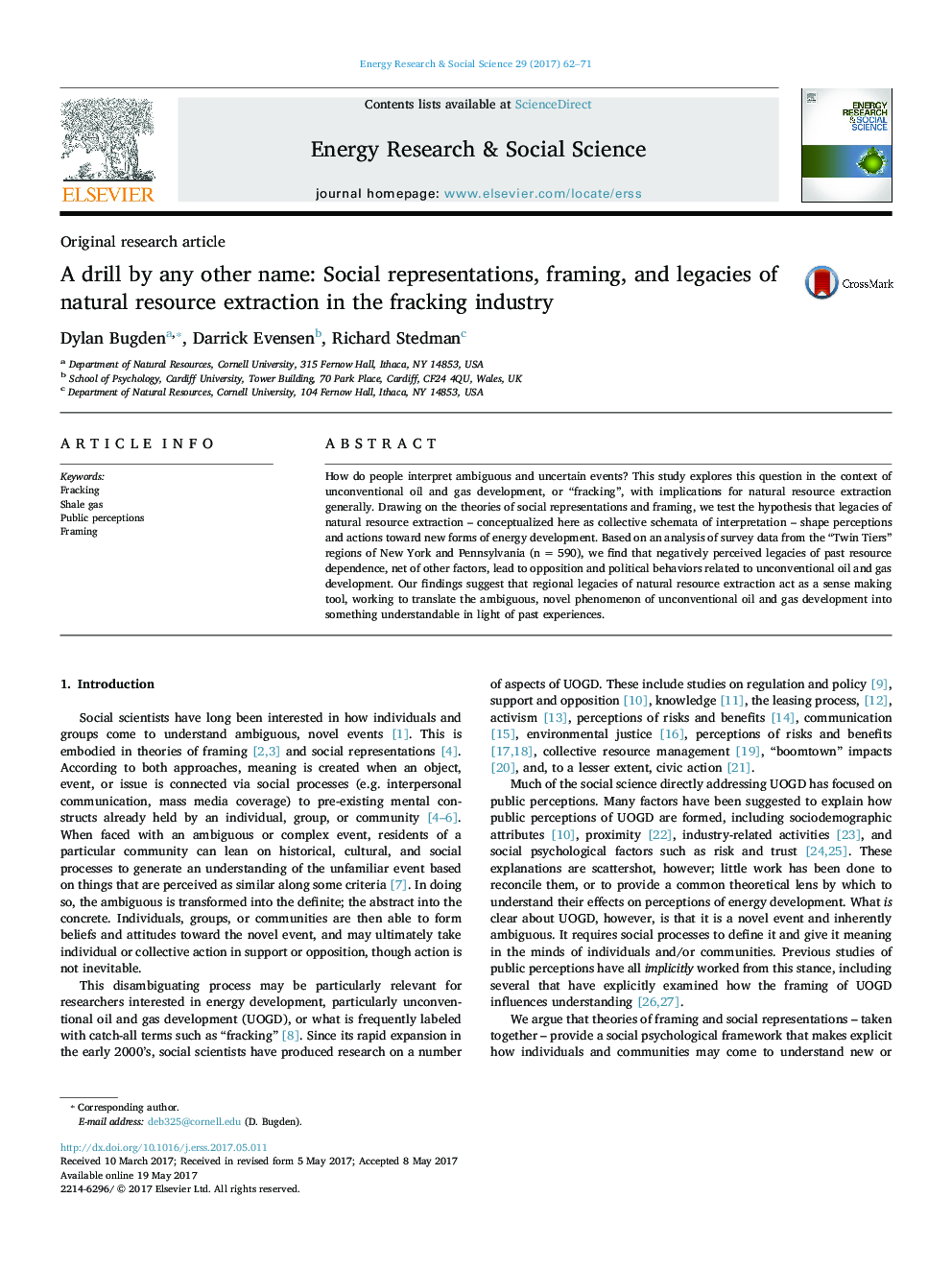| Article ID | Journal | Published Year | Pages | File Type |
|---|---|---|---|---|
| 6463930 | Energy Research & Social Science | 2017 | 10 Pages |
How do people interpret ambiguous and uncertain events? This study explores this question in the context of unconventional oil and gas development, or “fracking”, with implications for natural resource extraction generally. Drawing on the theories of social representations and framing, we test the hypothesis that legacies of natural resource extraction - conceptualized here as collective schemata of interpretation - shape perceptions and actions toward new forms of energy development. Based on an analysis of survey data from the “Twin Tiers” regions of New York and Pennsylvania (n = 590), we find that negatively perceived legacies of past resource dependence, net of other factors, lead to opposition and political behaviors related to unconventional oil and gas development. Our findings suggest that regional legacies of natural resource extraction act as a sense making tool, working to translate the ambiguous, novel phenomenon of unconventional oil and gas development into something understandable in light of past experiences.
